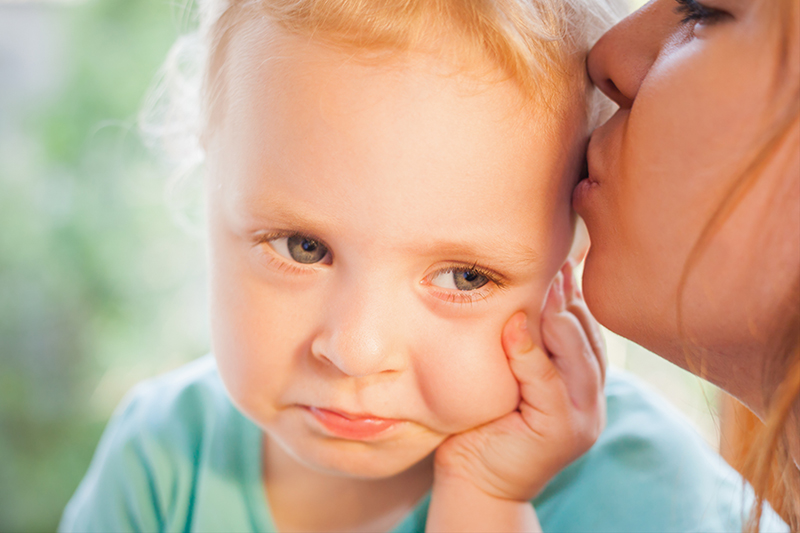
When breastfeeding is over and it hurts
When my oldest daughter was 18 months old, she got chickenpox. She had it very mild, only 10 pimples all over her body, but one of them was right inside her mouth. When she was breastfeeding, the milk stung her little mouth (breast milk has antibiotic properties); it hurt her so much that she didn’t want to breastfeed anymore. So she gave it up suddenly. Within a few hours, she went from everything to nothing. She spent a couple of bad nights, but she was fine. The problem was me. I was a mess, I couldn’t stop crying, I was very sad and I didn’t know what to do. People wanted to comfort me but told me things that only hurt me even more. Only when I talked to other lactation consultants did they understand me and know how to comfort me. What was wrong with me? Why did only two people know how to comfort me?
It can hurt when breastfeeding is over
When breastfeeding ends suddenly and unexpectedly, we may feel terrible for weeks. Breastfeeding can be compared to reading a book. Each mother-baby pair creates their own book: long, short, with smiles, or with tears.
Imagine that you are reading this magnificent book that you are passionate about and that has you totally captured page after page. You spend hours devouring it with excitement… and then, finally, the last page arrives. You close the back cover, and it’s over. Your mind and heart are filled with this story, and you think for a moment that you will never read anything like it again. You have closed the book, and now you have to look for one that is just as good, but that’s hard, and it seems that no other book will be the same and that nothing will be able to beat it.
And when breastfeeding ends unexpectedly for the mother, she usually feels the same: a deep sadness.
Babies may wean (or appear to be weaning themselves) for a variety of reasons, and this may cause distress for the mother. These situations and emotions are not always easy to explain or understand. In most cases, these weanings take place in “older babies” who are over one year old. Family and friends surrounding the mother may try to comfort her, but the things they say are often not helpful:
- Don’t be sad. Your baby is already too big for that anyway!
- But how long were you planning to breastfeed her?
- But you’ve been breastfeeding her already for such a long time!
- Why are you so sad?
- Don’t cry!
- Is that why you are crying?
- (and so on)
These unfortunate comments and questions are expressed with good intentions, but they don’t help any mother to feel better.
Grief is a more or less long and painful process of adaptation to a new situation, and we have to now find a new way to relate to our baby without the breast.
If weaning happens gradually from the baby, the mother has time to get used to the idea that breastfeeding is coming to an end. A gradual weaning process does not usually produce such deep sadness and grief as in the case of unexpected weaning.
The urge to cry and feelings of grief and sadness are part of this grieving process, and little by little, you get a new perspective on the situation. You can begin to see all the positive things you have experienced with breastfeeding, remembering moments and stories, and then eventually, it stops hurting.
For the people around the mother, the most challenging part is to listen without judgment and to show empathy and understanding. Allowing the mother to express herself without questioning her feelings is difficult.
As lactation consultants, we are more used to these situations, perhaps because we have also experienced them. Still, it is difficult for society to react to the grief caused by weaning.
If you are going through this, find your nearest breastfeeding support group (or social media group) or seek help from someone who can help you get over the pain.
Then I gradually came to terms with the fact that our breastfeeding journey was over. I felt better and smiled again. And when I took it for granted that breastfeeding was just a memory, two weeks later, in the bathtub, she latched on to the breast again. She nursed much longer, but those two weeks gave me a unique opportunity.